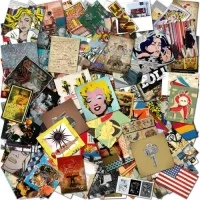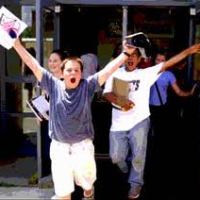When I began posting at this space twelve years ago, I was about to have my first chapbook of poems published. The Gray Limbo of Perhaps was selected in 2012 by Finishing Line Press, which was a new kind of thrill for a poet who’d spent the previous four years trying out her poems with public audiences. I’d had several published in journals and anthologies, and a few poems had even won prizes, but holding a book with my name on the cover was surreal.
I was still teaching high school English at the time and attending writing conferences every summer, honing my craft, trying new forms and styles. Eventually, two more collections followed — Map Making: Poems of Land and Identity (THEAC Press, 2015) and A Matter of Dark Matter (Kelsay Books, 2022). During that time, I also tried my hand at editing, helping a musician with his memoir. Then, within a period of two years, three life-changing events happened: I retired from teaching, Covid-19 struck, and in August of 2021, my father died. It was as if I’d entered a whole new world.
In the fall of 2021, just weeks after I’d lost my father, something extraordinary and serendipitous occurred. I received a phone call from Judith Kaufman, who was founder and editor-in-chief of a literary arts journal in Highland Park. I’d gotten to know Judy and many other wonderful poets at readings in Highland Park over the previous few years and had developed a great respect and admiration for their warm, artistic community. Judy was calling me to see if I’d be interested in taking over for her as editor-in-chief of the journal she’d started twenty years ago, East on Central. She was preparing to retire.
The timing was perfect. I’d been in a funk all through the pandemic, unable to write or focus. My father’s failing health and death had crushed my artistic spirit even more deeply. A new creative role with a new set of responsibilities that combined all my passions and strengths was just the right antidote. For several years I’d dreamed of the possibility of editing a literary journal, and now that dream had materialized in the blink of an eye.
That year I worked as Judy’s assistant, learning the ins and outs of the journal’s publishing cycle, meeting the rest of the staff on the East on Central board, and figuring out all the technological details. Last year I took on co-editorship with Judy, working as her equal and finding out how to best fit the editor’s hat onto my own head. We honored Judy’s retirement at the 2023 journal’s launch party in October, and I was named the new editor-in-chief. It was the 22nd volume of the journal, and with a new graphic designer on board, and more submissions coming in from a wider range of poets and artists, we added big splashes of color to announce a new era.
I’ve now been retired from teaching for five years. It’s taken this long to find my “2nd career” stride, but it’s been a revealing process. Some of my volunteer stints with various organizations didn’t prove to be a good fit, so I’ve let them go. Now, my time is spent wholeheartedly with just two: the East on Central journal and the Friends of the Palatine Library group, where I work in the book donations room. This in addition to caring for my son and driving him to various programs, as well as reading like a fiend (75 books in 2023!) keeps me just busy enough. What I’m not doing so much anymore is writing.
So it’s time to bid farewell to this blog. I’ll keep it open, since there are dozens of posts that offer teaching tutorials (a few still get regular hits) and some that share glimpses of my growth as a thinker and poet. Maybe I’ll return to it one day. Many thanks to those of you who have taken the time to read the posts and respond to them. That has meant a great deal to me.




































